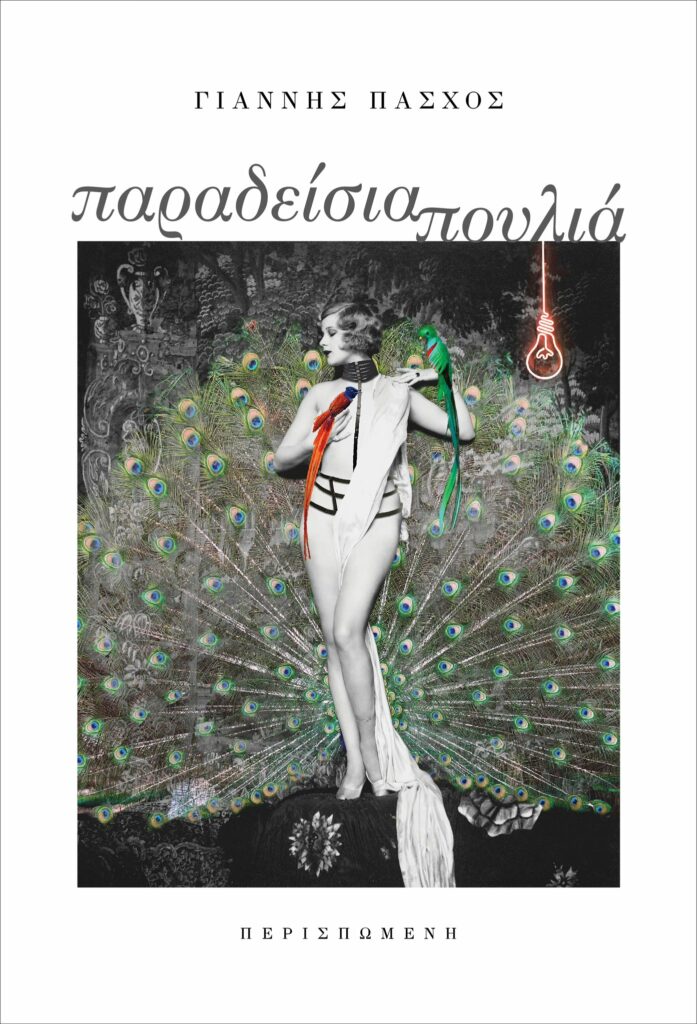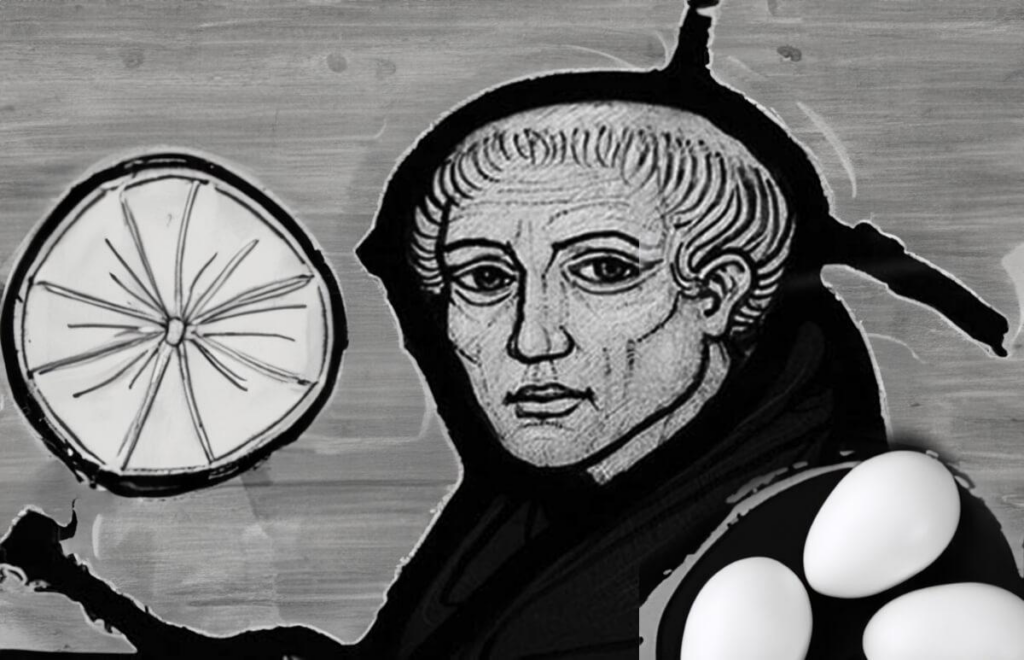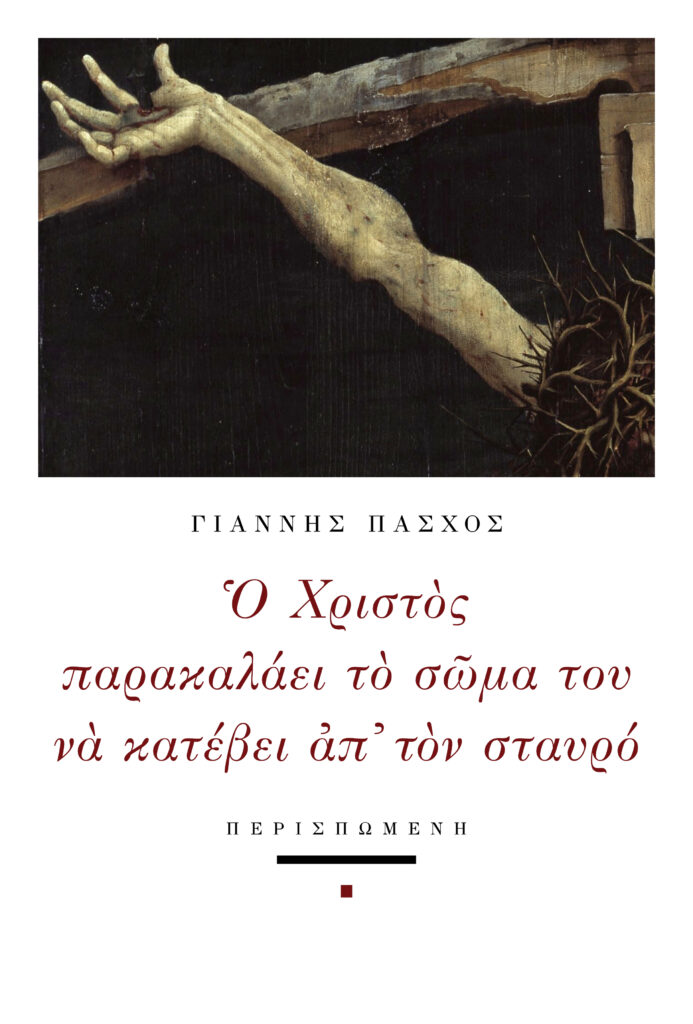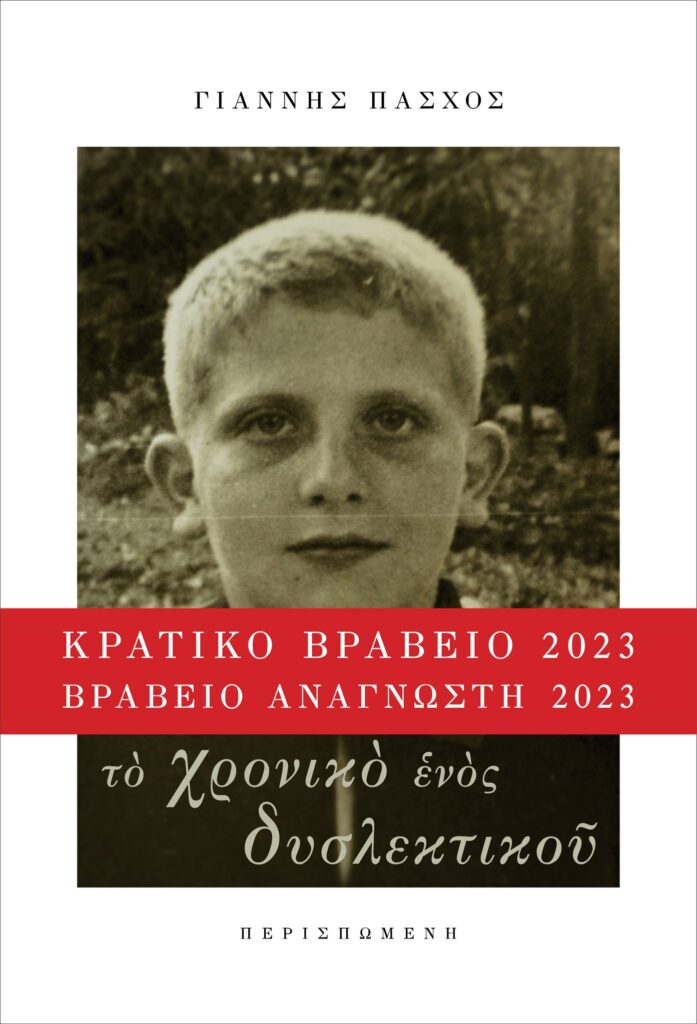Νέες δημοσιεύσεις
Παραδείσια πουλιά , Δεκέμβριος 2024

The Brussels Review: thebrusselsreview.com/giannis-paschos/the-feelings-detector
Translated by Alexandra Samothraki

https://www.hartismag.gr/hartis-68/ghastronomia/avgholemono-nin-kai-aei
- “Ο Χριστός παρακαλάει το σώμα του να κατέβει απ΄ τον σταυρό” μόλις κυκλοφόρησε !


-Γιάννης Πάσχος, «Ο Χριστός παρακαλάει το σώμα του να κατέβει από τον σταυρό», εκδ. Περισπωμένη 2024 , γράφει ο Ζαχαρίας Σκούρας https://www.hartismag.gr/hartis-66/biblia/einai-to-dna-pneyma-i-yli
-Special National Book Award 2023 for promoting the dialogue on a sensitive matter, i.e. learning difficulties.

A child of teachers, Giannis Paschos was raised surrounded by books, and started writing as soon as he was could, not daunted by the fact he didn’t yet know the alphabet, his imagination transcending this small technicality. His parents’ attempted to move him from hieroglyphics to letters was a struggle, however.
He returns to, and takes the reader through, his time in school; where, when he tried to spell out a word, it felt as if the letters banged fiercely against each other, to then beam up, disappearing, describing it “a torture, a war”. Bookending his experience was his parents’ polarised approach to his education: a strict, traditional father, who suspected laziness, and a more relaxed, nurturing mother, who rejected the sedatives prescribed to ‘manage’ Giannis. He recalls and reflects on the resulting fractiousness, as they became increasingly worried about his struggles in school, where they both taught.
Desperate to unlock the skill, Giannis became determined to learn how to read in Year 2, locking himself away, fervently practising, with no insight or understanding as to why it was so difficult for him. Later he became inspired by his countryside surroundings to start composing poetry; the artistry in him keen to come to the surface, despite the challenge to capture it in written words. Despite his efforts, school became a slog and in Year 8 he began to wonder about what the point of school was, something that tormented him, but he made it to secondary school, as the entry exams were abolished just before he needed to do them, allowing him to get it. The university entrance exams still had to be faced, and he looks at the hyper-effort involved to navigate an academic system that didn’t have the scope to accommodate the learning challenges dyslexic people face. But against all odds, he got in on the second round, a testament to the work he’d put in and self-belief he’d had.
In university, he had a revelation: “The gaps in my learning and my related issues would never leave me, never in all my life, and the only way to move forward was to allow my critical thinking to gain some ground by using it as a bridge leading to the essence of things, over my learning gaps, which meant that I would have to combine much more parameters than anyone else to come to a decision.”
He graduated from the Biology department with a ‘very good’, before doing his military service, which is compulsory in Greece, staying with the army for twenty-eight months. Having taken us through his childhood and university days, he offers us an insightful reflection on his experience.
Το χρονικό ενός δυσλεκτικού του ΓΙΑΝΝΗ ΠΑΣΧΟΥ στο Θέατρο 104 -Από 3 Φεβρουαρίου 2024 κάθε Σάββατο στις 21:00 και Κυριακή στις 18:15 –
